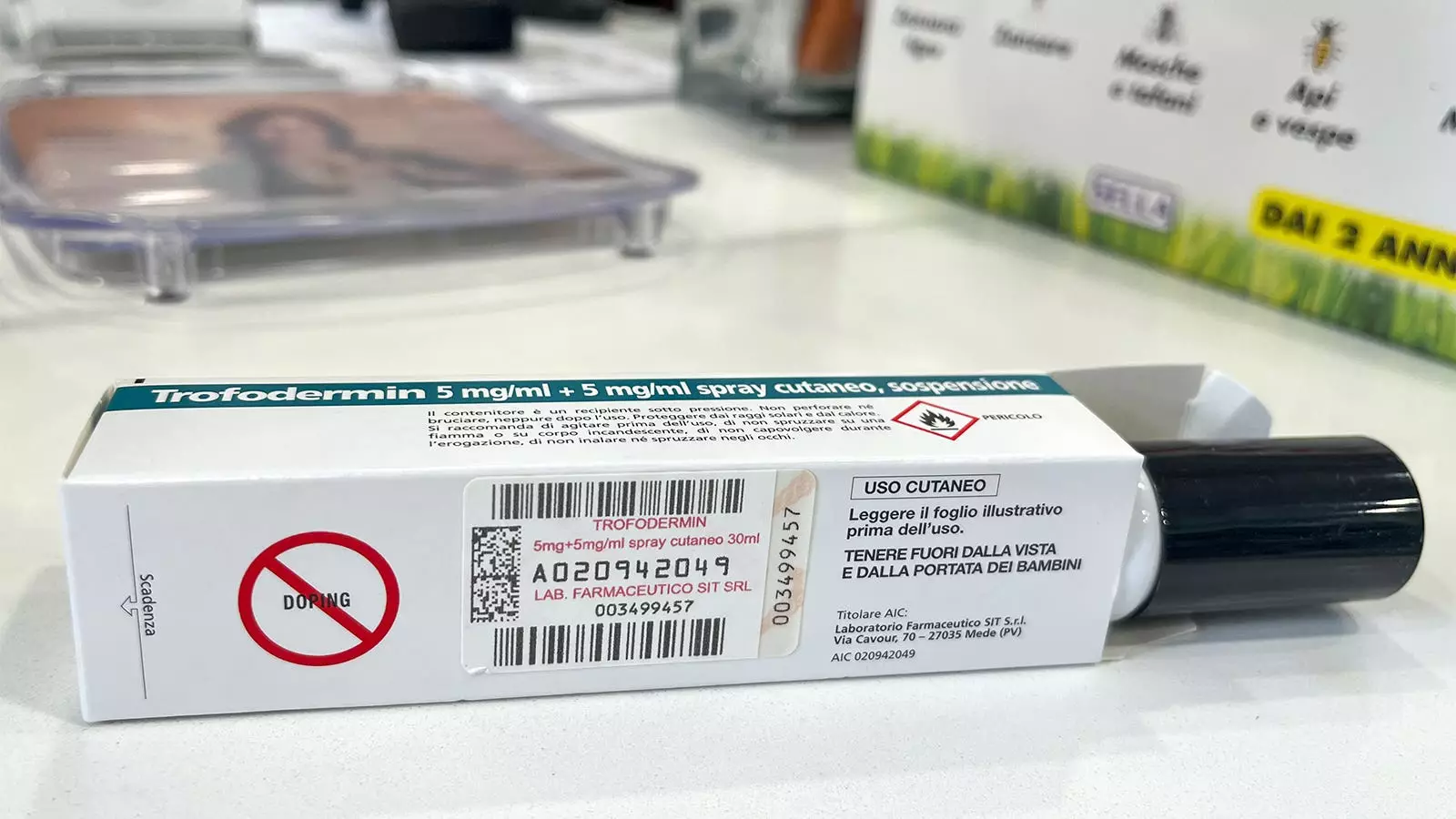Doping in sports has always been a controversial topic, with athletes facing serious consequences for using banned substances to enhance their performance. However, what happens when an athlete unintentionally consumes a substance that results in a positive drug test? This was the case for No.1-ranked tennis player Jannik Sinner, who found himself in hot water after failing two drug tests in March due to the banned anabolic steroid clostebol found in an over-the-counter spray he used in Italy.
Sinner’s ordeal began when his physical trainer purchased Trofodermin, a spray meant for treating cuts and scrapes, from a Rome pharmacy without a prescription. Little did they know that this product contained clostebol, a banned substance that led to Sinner’s positive drug tests. Despite Sinner’s claims of unintentional consumption through a massage from his physiotherapist, the consequences were severe.
Under Italian law, products containing banned substances come with a printed “DOPING” warning to alert consumers. However, in the case of Trofodermin, this warning is only displayed on the box and not the product itself. This lack of visibility poses a significant danger, as family members purchasing the drug may overlook the warning and unknowingly expose athletes to doping risks.
According to Italian lawyer Giovanni Fontana, representing athletes in doping cases involving clostebol is not uncommon. In Sinner’s case, the unintentional ingestion of clostebol led to a series of events that could have resulted in serious repercussions for his career. Fontana also raised the possibility of Sinner taking legal action against his trainer and physiotherapist for the impact on his image, legal costs, and emotional stress.
While clostebol is listed as a controlled substance in the United States, with strict regulations in place for its sale, the lack of awareness surrounding its presence in products like Trofodermin raises concerns globally. The World Anti-Doping Association’s extensive list of banned substances includes clostebol, emphasizing the need for athletes to remain vigilant about the products they use.
The case of Jannik Sinner serves as a cautionary tale for athletes and professionals in the sports industry. Unintentional doping can have far-reaching consequences, impacting not only the individual’s career but also their reputation and mental well-being. As the sporting world grapples with the complexities of doping regulations, education and awareness remain key in preventing similar incidents in the future.
The issue of unintentional doping in sports highlights the need for greater scrutiny and accountability in the use of everyday products by athletes. By learning from cases like Jannik Sinner’s, the sports community can work towards creating a safer and more transparent environment for all competitors.


Leave a Reply